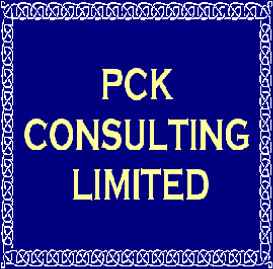Looking for a job? Of course you are or you wouldn’t be here in the first place !
We enjoy spending time with our candidates. It is so important to us to thoroughly know our candidates so that we can place them in the right role in the right business.
We are confident that we can offer you the right careers advice tailored to you. As well as ensuring that you have a CV that best promotes you, we also ensure that you are fully coached and prepared for interviews and that you have a full briefing on the company and role you decide to pursue. We provide the highest level of integrity and confidentiality. As a dedicated member of the REC (Recruitment & Employment Confederation) you can be assured that we operate within the highest of industry standards and are fully up to date with the latest information on all aspects of employment in the UK.
Pre Selection
We thoroughly read every CV and application we receive and having matched the role and individual requirements to those of the candidate we then decide if we progress it to the next stage. If successful, there is a pre screening interview with us which all candidates receive.
Pre Screening Interview
At this stage we will need to see any required documents such as passport, work permit, etc and to receive a copy of them. We will also need a Candidate Registration Form to be completed and supplied to us at the same time.
Because we know our clients so well, we adopt an extension of their selection interviews both from a business process and personal perspective. At this stage we will then be using the candidates CV to conduct the main part of the interview.
If we feel that the candidate meets the standards and criteria the client expects us to provide then we will forward the candidate to the formal interview with our client.
YOUR CV
The purpose of your CV is to make sure that you secure an interview for the role at the company of your choice. It also serves as a prompting tool to guide and help you during your interview.
Around 85% of CVs do not convey exactly what roles the candidate is suitable for. Invest time in looking closely at your CV and turn it into a document that works for you.
Tell your story from your most recent history and go backwards – this is known as reverse chronological order. Use employer names, dates and the job title that you had making sure that it says exactly what you have done and what successes you delivered when you were doing them. Always try and match your key successes and experiences to those of the job you are applying for!
Structure your CV with plenty of white space. Avoid using small margins and tiny font sizes. Look at good quality business documents – they usually have plenty of headings, bullet points and white space so copy a format that works well.
Preparing for the formal interview:
• Read a copy of the job spec
• Re-read your CV again
• It’s always good to have additional copies of your CV just in case the interviewer(s) need a copy
• Get a good nights sleep
• Check the map and directions to the interview location
• If possible, do a test run of the journey
• Leave in plenty of time
• Have telephone numbers and names of interviewer(s) with you in case of delay and to re familiarise yourself just before you go in
• If it can go wrong it will, so do not leave anything to chance
Upon Arrival
• Make sure you ask for the person that we have told you that you will be meeting
• Have your papers to hand and in the order you feel comfortable with and your questions ready
• Use a folder for your documentation
During the interview:
• Always listen carefully to the interviewer and make sure that your response relates 100% to the question which they asked
• Help the interviewer get the best out of you and your time with them
• If you feel you need to, control the interview as far as you reasonably can. As an example, ask the interviewer if it’s OK to talk through your CV with them
• Body language is very important so being positive with all of your actions is key. Have good eye contact, do not slouch and be positive with all of your body movements and positioning
• Do not interrupt the interviewer – you will lose valuable information they are giving to you and you may appear rude. If you think of something important then make a note of it immediately and come back to it later
• You will be positive about the role and the company so, when appropriate, tell them exactly why you would be very good at this job and give them relevant examples of how you would do things well in your new role
•If at the end of the interview you feel that you have not covered everything you want to, then do so if you get the opportunity. If you feel there is an area that you have not explained yourself so well in then ask the interviewer if there are points which you feel you have not covered at all or well enough – you may get an opportunity to address as area which you have not done so well in and this is your last chance to impress!

